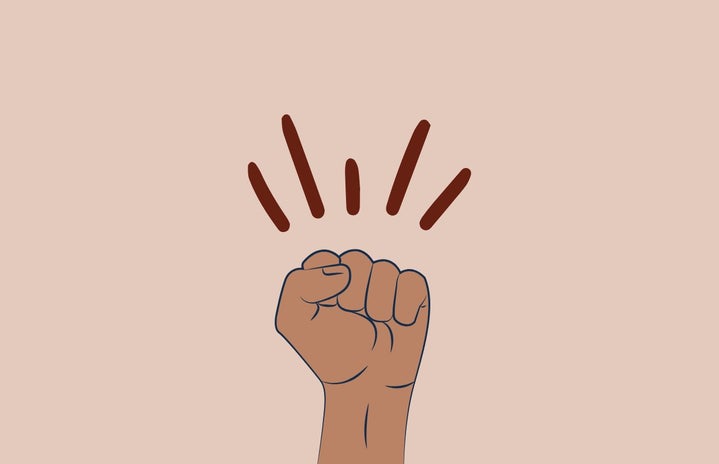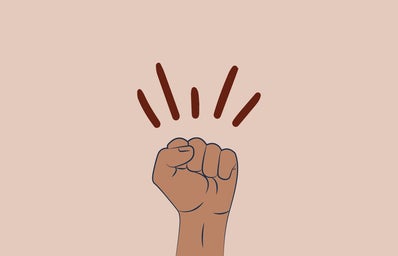In the wake of the 2020 #BlackLivesMatter movements across the nation following the tragic deaths of black Americans, such as George Floyd in Minnesota and Breonna Taylor in Kentucky, many Americans began sharing facts and statistics on the racial injustices black Americans face every day to spread awareness on these issues. From housing discrimination to the mass incarceration of black citizens for low-level crimes, I learned a lot more about life for black Americans. One topic I do not see come up much in these conversations, though, is the linguistic (language) discrimination black Americans face for speaking African American English (AAE).
What is AAE?
As mentioned, AAE stands for African American English and serves as a variety of the English language used predominately in the United States and in some parts of Canada. It can also get referred to as African American Vernacular English (AAVE), Black English, or Ebonics. Ebonics, however, is outdated in 2020 and not often used by linguists, mostly because of the controversial nature of the term.
What is linguistic discrimination?
Linguistic discrimination refers to the mistreatment of someone based on language use. Mistreatment does not refer to getting into a spat with a friend over the pronunciation of a word or what term you use to describe something. Mistreatment refers to ways people, in this case, black Americans, actively get discriminated against for how they speak that can result in a variety of injustices that go all the way up to court decisions.
What is a real-world example of linguistic discrimination against AAE speakers?
A high-profile example of linguistic discrimination can be seen in the trial following Trayvon Martin’s death in 2012. During the trial, Rachel Jeantel, a friend of Martin’s, testified in court as a leading prosecution witness as she spoke on the phone with Martin minutes before his death. She testified for roughly six hours, and because of her AAE usage, the jury ended up disregarding her testimony altogether in the deliberations that lasted over sixteen hours (Rickford & King 950). One juror in the case later revealed that they disregarded Jeantel’s testimony because they found her difficult to understand and not credible because of her language. The decision to dismiss Jeantel’s testimony ended up a contributing element to George Zimmerman’s acquittal of the second-degree murder charges he faced for killing Martin (Rickford & King 950). The jury in Martin’s case focused more on Jeantel’s use of AAE rather than the details she provided surrounding Martin’s case, a clear example of linguistic discrimination.
Why does AAE get perceived so negatively?
Just like any language or one of the many varieties within them, AAE contains unique phonological (sound), morphological (word structure), lexical (vocabulary), and syntactic (sentence structure) characteristics. Examples include negative concords (double negatives), copula absence (absence of a “to be” verb), and habitual be (use of unconjugated to be verb to indicate reoccurring actions).
- Negative Concord: I don’t know nothing (I don’t know anything)
- Copula Absence: They funny (They are funny)
- Habitual Be: They be cooking (They are always cooking)
All these examples conflict with the grammar rules American students will often learn in classrooms, as these features conflict with “proper English”, also referred to as Standard English (SA) by linguists. This belief that AAE is not proper and somehow inferior to SA serves as a prescriptivist viewpoint on language, where one sees a language or variety as deficit instead of different.
Why does this matter?
Linguistic discrimination can easily reach our nation’s courts, as seen in the Trayvon Martin case, where someone like George Zimmerman managed to walk free after the jury dismissed testimony from a key witness because of their AAE usage. This type of mistreatment occurs in far lower areas of society such as education, employment, housing, medicine, and other areas of everyday life (Rickford & King 951). Therefore, at every level of life for black Americans, they can endure discrimination solely for how they speak. This reality occurs because more times than not, educators teach their pupils that AAE language features are wrong, and in turn, can cause serious consequences for black Americans. In light of events over the last few months, learning how black Americans face linguistic discrimination can further help create much-needed change to American society.
Rickford, J.R., King, S. (2016). Language and linguistics on Trial: Hearing Rachel Jeantel (and other vernacular speakers) in the courtroom and beyond.



